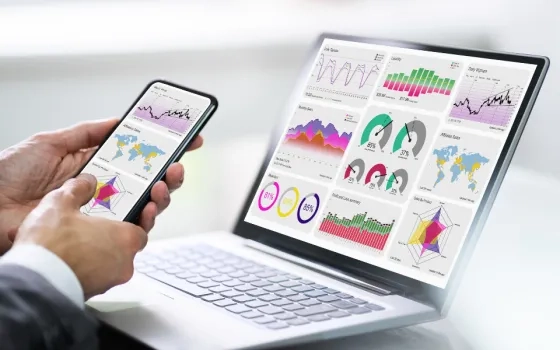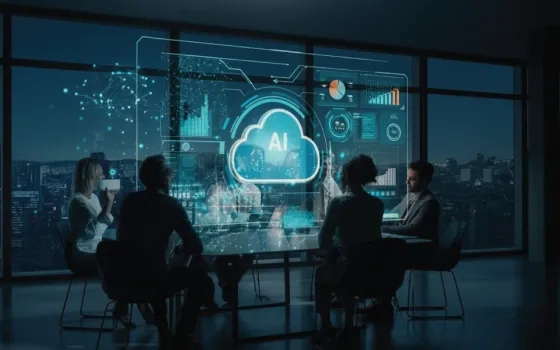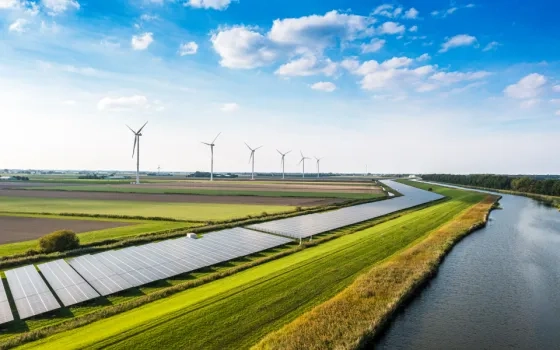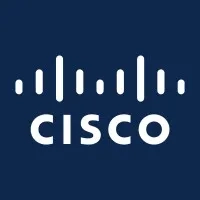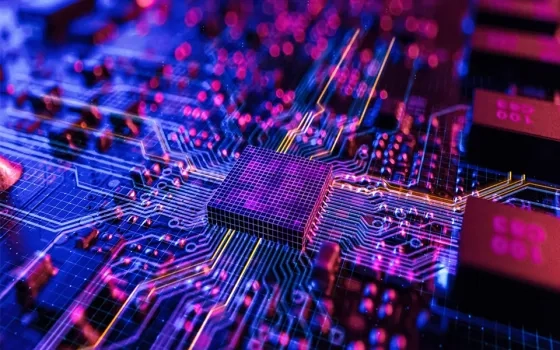It's hard to deny that sustainability and climate technology have been two of the most pressing issues in recent years. With our planet facing unprecedented challenges, it's more important than ever to take action towards a greener future. As we look ahead to 2023, there are several exciting predictions on the horizon for sustainability and climate tech. From innovative renewable energy solutions to eco-friendly manufacturing practices, these changes will undoubtedly impact both businesses and consumers alike. In this blog post, we'll explore the top five predictions for sustainability and climate tech in 2023, as well as what they mean for our future. So buckle up and get ready for a glimpse into what lies ahead!
Top 5 predictions for sustainability and climate tech in 2023
1. Carbon capture and storage technology will become more widespread
With increasing awareness about the negative impacts of carbon emissions, many companies are investing in carbon capture and storage (CCS) technologies. By capturing CO2 emissions from power plants and other industrial sources, these technologies can help to reduce greenhouse gas emissions. In 2023, we can expect to see CCS becoming even more widespread as companies look for ways to mitigate their impact on the environment.
2. Renewable energy solutions will continue to grow in popularity
Renewable energy has already made great strides in recent years, but it's only going to get bigger and better by 2023! Solar panels, wind turbines, hydropower systems – all of these renewable energy solutions will become even more common as people turn towards cleaner alternatives that don't rely on fossil fuels.
3. Sustainable manufacturing practices will be a top priority for businesses
As consumers become increasingly conscious about environmental issues, businesses are starting to take notice too. Many large corporations have committed themselves to sustainable manufacturing practices that focus on reducing waste and minimizing their ecological footprint. This trend is expected to continue into 2023 as companies try to stay ahead of the curve.
4. The rise of electric vehicles
Electric cars may still seem like a novelty today, but they're quickly gaining ground against traditional petrol-powered vehicles! By 2023 we should start seeing electric cars taking up an increasing share of the market thanks largely due innovations within battery production techniques which make EV's cheaper than ever before.
5. Data-driven sustainability initiatives will be essential
We live in an age where data rules everything around us – including sustainability! Companies using advanced analytics tools such as AI or Machine Learning algorithms can analyze patterns within consumer behaviour allowing them insights into how customers want eco-friendly products - this means they'll be able make decisions based on concrete evidence rather than simply guessing what might work best for their target audience
How will these changes affect businesses and consumers?
The changes in sustainability and climate tech will have a significant impact on both businesses and consumers. With the shift towards more eco-friendly practices, businesses will need to adapt quickly or risk being left behind. This means investing in sustainable technologies, reducing waste and carbon emissions, and implementing environmentally responsible business practices.
Consumers are also becoming increasingly conscious of their environmental impact, which is driving demand for green products and services. Companies that fail to meet these demands may find themselves losing customers to competitors who offer more sustainable solutions.
The adoption of renewable energy sources such as solar panels is expected to increase significantly over the next few years as well. This could mean lower energy costs for both households and businesses that embrace this technology.
However, there will likely be some challenges associated with these changes as well. For example, not all companies may be able to afford the investments needed for sustainable operations initially. And while green products may be in high demand among consumers, they may come at a higher price point compared to traditional alternatives.
It's clear that sustainability and climate tech are here to stay - so it's important for both businesses and consumers alike to prepare accordingly!
What are the long-term implications of these changes?
As we continue to push towards a more sustainable and climate-friendly future, it's important to consider the long-term implications of these changes. One of the biggest implications is the potential for significant economic growth through innovation and investment in renewable energy technologies.
As businesses shift towards utilizing renewable resources, there will likely be a decrease in demand for non-renewable resources such as oil and coal. This could lead to lower prices for these resources but also potentially impact jobs within those industries. However, new jobs will emerge in areas such as solar panel manufacturing and wind turbine installation.
Another long-term implication is the potential for improved public health outcomes. As we reduce our reliance on fossil fuels, air pollution levels are likely to drop resulting in fewer respiratory issues among the population. Additionally, increased access to clean drinking water and sanitation facilities can help reduce waterborne illnesses.
By taking action now towards sustainability efforts, we have an opportunity to mitigate or prevent some of the worst impacts of climate change such as extreme weather events which can result in damage or loss of property and even loss of life.
While some may view sustainability changes as costly or inconvenient short-term solutions; they ultimately provide numerous benefits including economic growth opportunities, improved public health outcomes and mitigating future risks associated with climate change.
What can we do to prepare for these changes?
As individuals, we can take small steps towards preparing for the changes that are soon to come. One of the most important things we can do is educate ourselves about sustainability and climate technology. We should not only understand how these technologies work but also how they will impact our lives.
Another way to prepare is by making lifestyle changes that prioritize sustainability. This includes reducing our carbon footprint by using renewable energy sources such as solar panels and wind turbines, driving less or switching to electric cars, eating a plant-based diet, reducing waste by recycling and composting, and choosing environmentally-friendly products.
Businesses can also play a significant role in preparing for these changes. They should start implementing sustainable practices into their operations such as reducing packaging waste, sourcing materials responsibly, minimizing energy usage and decreasing water consumption. It's time for businesses to shift their focus from profits alone to profit with purpose.
Governments around the world must take bold action towards creating policies that prioritize sustainability over economic growth. Governments need to invest more in renewable energy sources while phasing out fossil fuels subsidies; they must promote conservation efforts like reforestation programs while passing legislation on emissions reduction targets.
In summary, preparing for upcoming changes requires collective effort from all sectors: individuals must make sustainable lifestyle choices; businesses have an ethical responsibility towards sustainability; and governments need strong leadership when it comes down implementing national policy change initiatives.
Conclusion
After analyzing the top five predictions for sustainability and climate tech in 2023, it is clear that we are moving towards a more sustainable future. These changes will not only benefit our planet but also have significant impacts on businesses and consumers.
Businesses will need to adapt to these changes by implementing sustainable practices in their operations. Consumers will have access to eco-friendly products and services that align with their values.
Moreover, the long-term implications of these changes are enormous. We can expect a decrease in carbon emissions, improved air quality, and reduced waste production leading towards a healthier planet overall.
To prepare ourselves for these upcoming changes, we must educate ourselves about sustainability and climate technology so that we can make informed decisions as consumers. We should also support policies aimed at promoting sustainability initiatives within companies and communities worldwide.
While there is still much work to be done, the advancements made in sustainability and climate technology indicate positive change heading our way in 2023. Let us embrace this change together for a brighter future ahead!



